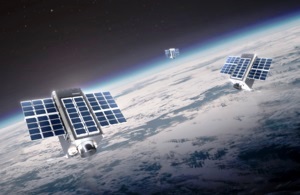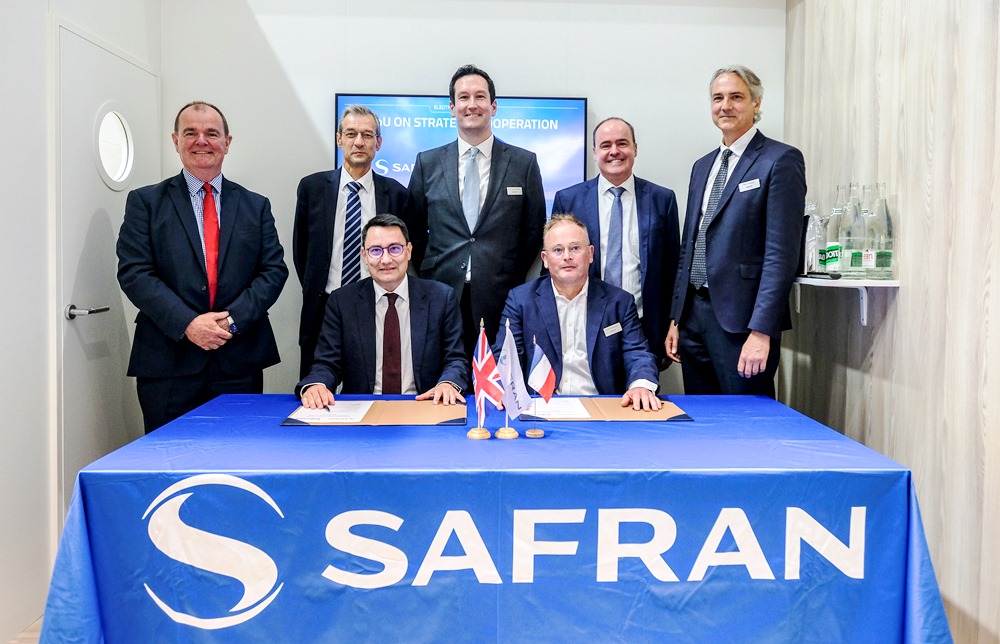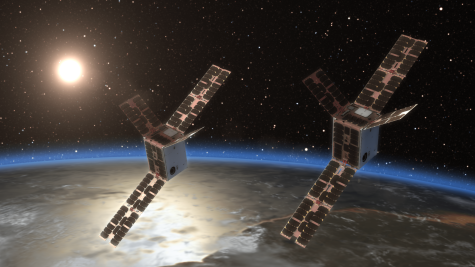SSC successfully operates InflateSail satellite
The team are celebrating the successful operation of their InflateSail mission – which has successfully tested both inflatable and ‘deorbit sail’ technologies in space from a small nanosatellite.
SSC was responsible for the design, construction and testing of the spacecraft on behalf of the Von Karman Institute (VKI), Belgium. Last month (Friday 23 June) saw the successful launch of the InflateSail satellite, which marked a milestone in the deployment of low-cost inflatable and sail technologies in space.
InflateSail demonstrated the effectiveness of using a drag sail in Low Earth Orbit (LEO) to dramatically increase the rate satellites lose altitude and re-enter the Earth's atmosphere. This prevents the satellite from contributing to the existing 7,000 tonnes of ‘space junk’ in orbit, and from being involved in any potentially disastrous collisions.
Since the satellite’s first turn-on, SSC’s mission operations centre has been tracking and receiving data from it. Over the next few months, the drag produced by the sail will make the satellite gradually reduce its altitude, until it re-enters the Earth’s upper atmosphere and burns up.
Prof Craig Underwood, Head of SSC’s Environments and Instrumentation Group and Principal Investigator for the mission at University of Surrey, said: “We are getting tremendous data from the spacecraft, which have already given new insights into these key deorbiting technologies in the real space environment. InflateSail heralds yet another successful CubeSat mission for the space engineering and academic team at the SSC.
“It also demonstrates how we can effectively help reduce space junk, and later this year we will launch one of our flagship missions, RemoveDebris – one of the world’s first missions to test capturing of artificial space junk with a net and harpoon.
“The technologies SSC developed are already finding their way into future missions, through our strong relationships with the UK and European space industries.”
Dr Andrew Viquerat, Lecturer in Structural Mechanics at University of Surrey, said: “Inflatable space structures allow very large, lightweight objects to be packaged in an extremely compact way during launch. We hope that this successful demonstration will lead to a greater adoption of this type of technology.”

The 3.2 kilogram InflateSail is '3U' in size (10cm x 10cm x 30cm) and is equipped with a one metre long inflatable boom and a 10 square metre deployable drag sail. The deorbiting sail, as deployed, allows a satellite to come back down to Earth much more rapidly, avoiding the satellite from becoming space junk. Shortly after the satellite was inserted into its orbit, the satellite booted up and once clear of the other satellites on the launch, automatically started its deployment.
The satellite works by first deploying a one metre long inflatable boom using a cool gas generator (CGG) to provide the inflation gas - the boom skin is a metal-polymer laminate which gains rigidity once inflated. Second, a motor (at the end of the boom) extends four lightweight bistable carbon booms drawing out a 3.1 x 3.1 metre square sail, which is only an incredible 12 micro-metres thick.
InflateSail was designed as a demonstrator for end of life deorbiting technology, and hence needed to be reliable and to have as long a shelf life as possible, as the sail is only used at the end of a satellite’s life. The payload on InflateSail was constructed almost three years ago, so it will still perform its function after at least that long a period of inactivity.
The InflateSail CubeSat, designed and built at SSC (Surrey Space Centre) at the University of Surrey, for the Von Karman Institute (VKI), Belgium, is one of the technology demonstrators for the QB50 programme.
The mission builds on the success of the mission and engineering services group at SSC, who are involved with a range of on-going spacecraft missions including CubeSats and larger scale missions. Last year SSC launched the AlSat-1N mission, a joint collaboration between the UK space agency and the Algerian space agency, resulting in Algeria’s first CubeSat.
The Surrey Space Centre (SSC), part of the University of Surrey, is a world leading Centre of Excellence in Space Engineering, whose aim is to underpin the technical development of the space industry through its advanced research programmes. SSC, comprising approximately 90 academics, researchers and support staff, develops new innovative technologies which are exploited by the space industry.
Surrey's pioneering small satellite activities started in 1979 as an academic activity at the University, leading to the formation of a highly successful spin-out company: Surrey Satellite Technology Ltd (SSTL) which is now part of the Airbus group today employs over 500 staff.
















